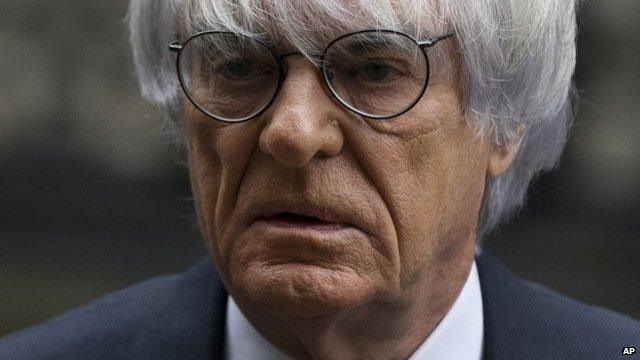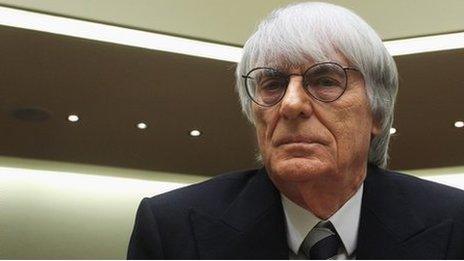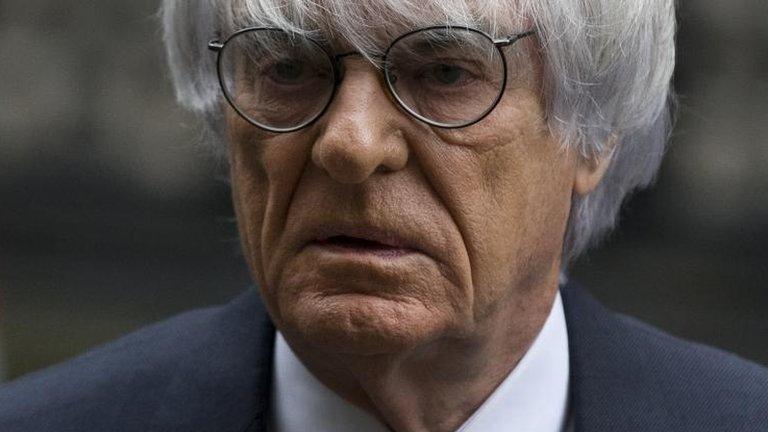Bernie Ecclestone to pay £4m despite winning legal fight
- Published

The judge said it was impossible to regard Bernie Ecclestone as a truthful or reliable witness
Formula 1 boss Bernie Ecclestone has been ordered to pay £4m in legal fees despite winning a High Court fight with a German media company.
Mr Justice Newey said the 83-year-old had to pay a price for giving "untruthful evidence" and ruled that he settle half of his legal bills.
In February, the judge rejected an £85m damages claim from Constantin Medien against Mr Ecclestone.
But he found the motorsport boss made a corrupt deal over a sale of F1 shares.
Mr Justice Newey had been asked to decide who should pay lawyers' fees in a follow-up hearing at the High Court in London.
He heard Mr Ecclestone, chief executive of F1 Group, who was not at the hearing, had run up costs of more than £8m.
And despite saying it was the "general rule" following trials that losers paid for winners' legal bills, he decided this would not be applied in Mr Ecclestone's case.
'A fantastic figure'
The judge said the F1 boss had not been "reliable or truthful" during the court case, and ordered that Constantin Medien pay half of his costs and he pay the remainder.
A lawyer representing the German company described Mr Ecclestone's legal bill of nearly £8.5m as "a fantastic figure".
Mr Ecclestone's lawyer accepted that overall costs were "high" but said they were not "that high for commercial litigation".
During the case, which ended last month, the German media organisation had argued that it lost out after Mr Ecclestone entered into a "corrupt agreement".
It had had an interest in the 2006 sale of a stake in F1, belonging to the German bank Bayern LB and bought by private equity group CVC Capital Partners.
Lawyers for Constantin Medien had claimed the sale was agreed "without the normal and proper process" and for an undervalued price. They were seeking £85m in compensation.
Mr Justice Newey ruled that the damages claim failed because it had been "no part" of Mr Ecclestone's purpose for shares to be sold at an "undervalue".
Bribe
However, he did find that the motorsport mogul had bribed German banker Gerhard Gribkowsky to facilitate the sale to a buyer chosen by him.
Mr Ecclestone confirmed he had paid Mr Gribkowsky £10m - but claimed he did so because the banker suggested he would create difficulties with tax authorities. The judge rejected this.
He also described some evidence given by Mr Ecclestone as "unsatisfactory", saying: "Even... making allowances for the lapse of time and Mr Ecclestone's age, I am afraid that I find it impossible to regard him as a reliable or truthful witness."
- Attribution
- Published5 August 2014

- Published20 February 2014
